Why Birds Matter
Why Birds Matter
Avian Ecological Function and Ecosystem Services
AAN H. EKERCIOLU, DANIEL G. WENNY, AND CHRISTOPHER J. WHELAN, EDITORS
THE UNIVERSITY OF CHICAGO PRESS
CHICAGO AND LONDON
AAN H. EKERCIOLU is professor in the Department of Biology at the University of Utah and distinguished visiting fellow at Ko University of Istanbul.
DANIEL G. WENNY is senior landbird biologist at the San Francisco Bay Bird Observatory and visiting research scholar at the Museum of Vertebrate Zoology, University of California, Berkeley.
CHRISTOPHER J. WHELAN is visiting research associate professor in the Department of Biological Sciences at the University of Illinois at Chicago.
The University of Chicago Press, Chicago 60637
The University of Chicago Press, Ltd., London
2016 by The University of Chicago
All rights reserved. Published 2016.
Printed in the United States of America
25 24 23 22 21 20 19 18 17 16 1 2 3 4 5
ISBN-13: 978-0-226-38246-3 (cloth)
ISBN-13: 978-0-226-38263-0 (paper)
ISBN-13: 978-0-226-38277-7 (e-book)
DOI: 10.7208/chicago/9780226382777.001.0001
Library of Congress Cataloging-in-Publication Data
Names: ekerciolu, aan, editor. | Wenny, Daniel G., editor. | Whelan, Christopher J. (Christopher John), 1958 editor.
Title: Why birds matter : avian ecological function and ecosystem services / aan H. ekerciolu, Daniel G. Wenny, and Christopher J. Whelan, editors.
Desciption: Chicago ; London : The University of Chicago Press, 2016. |
Includes bibliographical references and index.
Identifiers: LCCN 2015049863 | ISBN 9780226382463 (cloth : alk. paper) | ISBN 9780226382630 (pbk. : alk. paper) | ISBN 9780226382777 (e-book)
Subjects: LCSH: BirdsEcology. | BirdsEnvironmental aspects.
Classification: LCC QL698.95 .W49 2016 | DDC 598DC23 LC record available at http://lccn.loc.gov/2015049863
 This paper meets the requirements of ansi/niso z39.48-1992 (Permanence of Paper).
This paper meets the requirements of ansi/niso z39.48-1992 (Permanence of Paper).
Contents
by Jeffrey A. Gordon
Christopher J. Whelan, aan H. ekerciolu, and Daniel G. Wenny
Matthew D. Johnson and Steven C. Hackett
Christopher J. Whelan, Diana F. Tomback, Dave Kelly, and Matthew D. Johnson
Sandra H. Anderson, Dave Kelly, Alastair W. Robertson, and Jenny J. Ladley
Daniel G. Wenny, aan H. ekerciolu, Norbert J. Cordeiro, Haldre S. Rogers, and Dave Kelly
Andy J. Green, Merel Soons, Anne-Laure Brochet, and Erik Kleyheeg
Diana F. Tomback
Travis L. DeVault, James C. Beasley, Zachary H. Olson, Marcos Molen, Martina Carrete, Antoni Margalida, and Jos Antonio Snchez-Zapata
Motoko Fujita and Kayoko O. Kameda
Chris Floyd and Kathy Martin
aan H. ekerciolu and Evan R. Buechley
aan H. ekerciolu, Daniel G. Wenny, Christopher J. Whelan, and Chris Floyd
Birdwatching, huh? You mean you just watch them? Whats the point?
Millions of people watch birds, some casually, some devoting staggering amounts of time and resources to an avocation that can border on obsession. And yet Ill wager that nearly all birders have repeatedly faced some variant of the line of questioning above. No matter how essential an awareness and appreciation of birds may seem to those of us who already love them, lots of peoplemany of whom are in positions that involve making decisions with significant ecological impactjust dont get it. Why should anyone care about birds?
One of the core virtues of this book is that the editors, aan ekerciolu, Daniel G. Wenny, and Christopher J. Whelan, along with their contributors, pursue the question of the value of birds along a broad front. Even as they seek, with authority and rigor, to explicate the many ways in which birds and their activities add real, measurable value to human economies, they never lose sight of the value birds have in their own right.
A single flock of snow geese might, over the year, provide various people with food, clothing, recreation, an aesthetic thrill, and a deep, even spiritual sense of connection to the passing of seasons and time. That same flock might also provide a level of ecosystem disservice, perhaps overgrazing certain habitat areas. But apart from all these human-assigned, instrumental values, there is the intrinsic value of the geese themselves: sentient, social beings amazingly adapted to some truly challenging conditions. This book is large enough in scope and wide enough in outlook to embrace all these things.
If we are to successfully advocate for the conservation of the birds and the habitats that have done so much to sustain our own lives, we must adopt just such an outlook because we need as many arrows in our quivers as we can get. In one situation, the simple aesthetic beauty of birds and bird song may be persuasive; in others, dollars and cents may be the only language spoken. Most often, though, it will take a combination of approaches to carry the day and build consensus around bird conservation.
Why Birds Matter is a most welcome example of how scientific ornithology undergirds and enriches the pleasure we get from even informal, recreational birdwatching. Birders who read it will come away with a new understanding and appreciation of just what a contribution birds make to our world and to our lives. Theyll also be better able to answer the persistent queries of skeptics, likely winning converts to bird appreciation and conservation in the process. And that matters a great deal indeed.
Jeffrey A. Gordon
President, American Birding Association
Delaware City, Delaware
August 2015
As we are the editors of this volume, it should go without saying that to us and to all the contributors, as well as to countless people around the world, birds matter. Each of us has a unique story for how we became passionate about birds.
Birds matter in many waysmaybe as many as there are people who care about them. In this volume, we examine how birds matter from the perspective of ecosystem services, those aspects of nature that benefit humans.
Despite the anthropocentric perspective of the ecosystem services documented here, we and this books contributors know that birds matter in many ways that transcend this utilitarian perspective. Indeed, birds indirectly benefit humans by facilitating other biological processes or products that humans use. We will not lose sight of these other roles of birds, and we hope that other advocates for bird conservation and research do not lose sight of them either.
The contributions that birds and other taxa make to human well-being are profound; they deserve recognition by policy makers and by the public at large. Of course, if the public recognizes the value of birds and votes accordingly, policy makers will do so as well.
The need to inform the public about the contributions of birds to ecosystem services became abundantly clear when one of us (CJW) gave a public presentation on the subject in a rural area southwest of Chicago dominated by soy and corn agriculture. When we presented the results of a Dutch study showing that bird predation on apple-damaging insects increased the apple yield by 66%, two farmers in the audience asked: Why isnt this information public?
Of course the information is available to the public, but those of us who are most privy to it do a bad job of getting it out beyond the community of professionals. Hence, we designed this book to convey the current science in a way that an educated nonscientist could relate to and understand. For helping us realize such a book, we are grateful to the University of Chicago Press, which has supported us since the books conception in 2007, and to our dedicated colleagues who have contributed chapters. We also thank in particular Christopher Chung and Evan White, both of whom helped steer the book through the review and publication process at the Press.


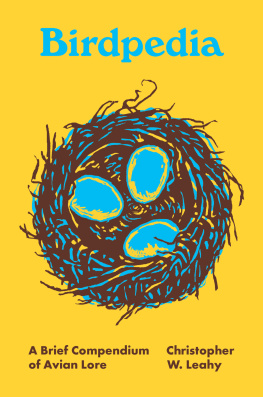
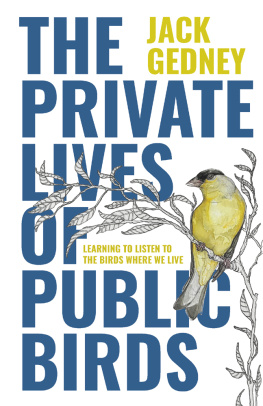
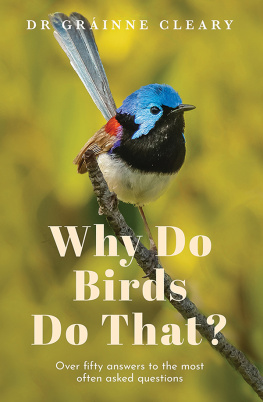
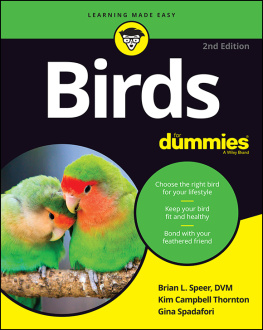
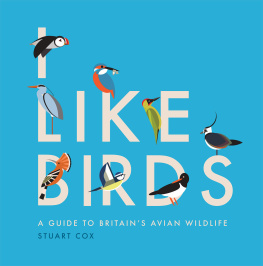


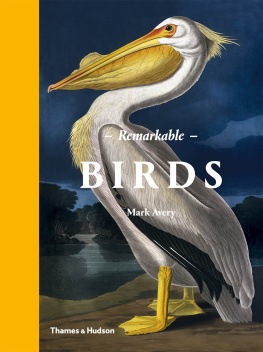

 This paper meets the requirements of ansi/niso z39.48-1992 (Permanence of Paper).
This paper meets the requirements of ansi/niso z39.48-1992 (Permanence of Paper).